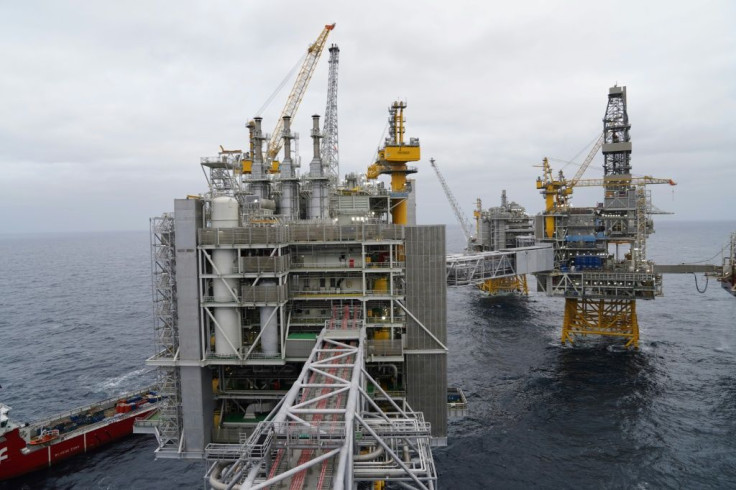Oil Production: Norway Defies Environmentalists And Ramps Up Energy Output

KEY POINTS
- Norway is western Europe's biggest oil producer
- Norway's new oil minister Sylvi Listhaug has mocked wind energy
- The newly discovered Johan Sverdrup will produce 660,000 bpd in a few years
Norway’s huge oil and gas industry, under pressure from environmentalists to reduce activities, has nonetheless moved to aggressively ramp up production.
The newly discovered Johan Sverdrup oil field in the North Sea, the largest such property in western Europe, began operations in October and is slated to deliver about 0.5% of global oil demand by next year. Johan Sverdrup currently produces more than 300,000 barrels per day.
Equinor, the field’s operator, expects Johan Sverdup to increase production to 440,000 barrels per day by the summer of 2020, then rise further to 660,000 barrels per day after 2022. This oilfield is projected to have a life span of 50 years. "At its peak, it will represent approximately 25% to 30% of the total oil production from the Norwegian continental shelf," said Arne Sigve Nylund, the head of Equinor's Norway operations.
Equinor defended the new field by stating: “world energy demand continues to rise and we will still have a significant need for oil and gas in the foreseeable future.”
Kjell-Børge Freiberg, the former oil minister, said more than 50% of Norway’s oil reserves remain untapped.
“We will be a supplier as long as there is demand for oil and gas,” he said.
Moreover, oil is a cash cow for Norway, financing about 20% of the government’s budget.
Norway’s oil lobby projected the country’s oil and gas firms will raise investments by 4% to 194.6 billion kroner ($21.8 billion) in 2020, up from 182.5 billion kroner ($20.5 billion) in previous forecasts.
However, the prolific new oilfield has alarmed environmentalists although Equinor claims its oil extraction techniques are “cleaner” than those used by other oil firms.
“This is a complete greenwash; both of Equinor and the Norwegian government,” said Frode Pleym, the head of Greenpeace Norway. “It doesn’t matter to the climate crisis whether the oil came from Saudi Arabia, the U.S. or Norway. We need to stop looking for new oil and gas. We have already found more oil and gas than the world can afford to use. The government can no longer ignore the dangerous impact its exported oil is having on the climate.”
Environmentalists assert Norway will have to severely curtail oil production to cut greenhouse gas emissions. Swedish teen activist Greta Thunberg has called for the gradual shutdown of Norway's oil and gas industry.
“Who should be the first movers in leaving oil in the ground? There’s no country better equipped than Norway,” said Silje Lundberg, head of the Norwegian Society for the Conservation of Nature. “They [Norwegian government] don’t understand the risks that Norway is facing if we keep pretending that tomorrow will be the same as yesterday, and not understanding that it comes with financial risks. If we just continue with this blind faith -- it’s a bet against Norwegian and international climate policies. It's the oil policies that lay the groundwork for climate policy, and it should be the other way around.”
But Norway’s new oil minister wants more oil drilling and has disdained the environmentalists.
Sylvi Listhaug, who has disparaged wind energy turbines as “white monsters” has also characterized oil and gas as a “solution” rather than a “problem” with respect to climate change.
In 2012, Listhaug stated it “has not been proven that human [carbon dioxide] emissions cause climate change. It is mostly an excuse for imposing more taxes.”
© Copyright IBTimes 2024. All rights reserved.





















